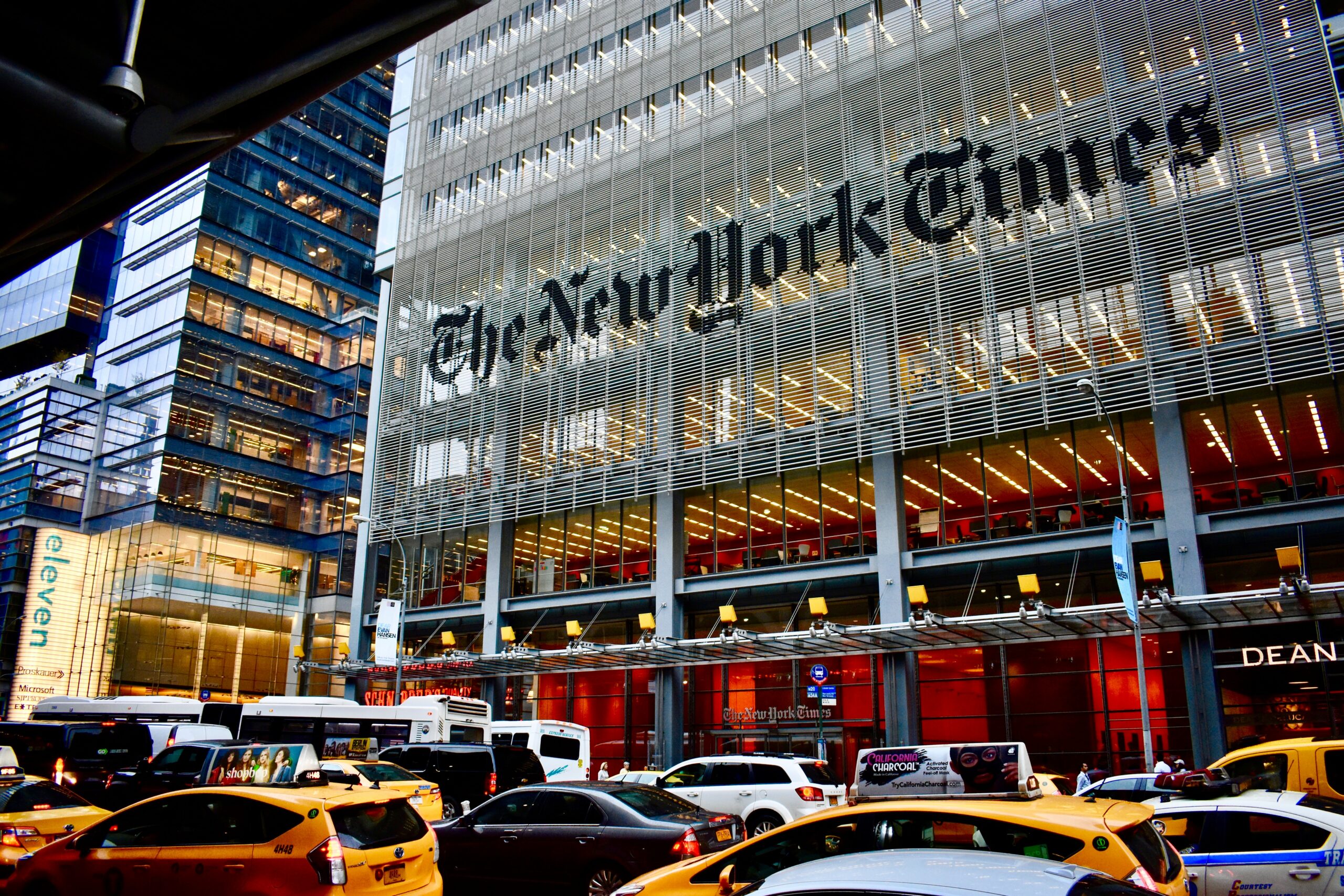
Photo by Andres Oropeza on Unsplash
New York Times Sues OpenAI and Microsoft Over Copyright Infringement
December 27, 2023
The New York Times has initiated legal proceedings against OpenAI and Microsoft, alleging infringement of copyrighted material. The lawsuit, filed on Dec. 27 in Manhattan federal court, is the first instance of a major U.S. media publisher suing the two organizations.
The legal action centers on the use of copyrighted material in OpenAI’s ChatGPT, an artificial intelligence language model developed in collaboration with Microsoft. The New York Times contends that its proprietary content has been used without permission to “train automated chatbots that now compete with the news outlet as a source of reliable information.”
The media company is not the only group to complain about ChatGPT’s use of content from across the internet. Per CNN, writers, actors, and other creative people who upload their work online worry that it could be used by chatbots like ChatGPT without appropriate compensation. Others have begun to sue for copyright violation as well, such as a group of nonfiction writers who filed a lawsuit last week against OpenAI and Microsoft for purportedly using their material from academic journals without permission.
The Times asserts that the unauthorized use of its content constitutes a violation of its intellectual property rights and seeks legal remedies to address the alleged infringement. The lawsuit does not specify how much financial retribution the media company is seeking, but it does state, “This action seeks to hold them responsible for the billions of dollars in statutory and actual damages that they owe for the unlawful copying and use of The Times’s uniquely valuable works.”
Additionally, the suit asks for companies to “destroy any chatbot models and training data that use copyrighted material from The Times.”
The implications of this legal dispute extend beyond the immediate parties involved, sparking discussions about the evolving landscape of content creation and consumption in the era of advanced AI technologies.
“Through Microsoft’s Bing Chat (recently rebranded as ‘Copilot’) and OpenAI’s ChatGPT, Defendants seek to free-ride on The Times’s massive investment in its journalism by using it to build substitutive products without permission or payment,” the complaint says. It also notes that The Times attempted to “reach a negotiated agreement” with OpenAI and Microsoft with the goal of ensuring it received fair value for using its content, facilitating a “healthy news ecosystem,” and helping to create generative AI tech responsibly.
However, the defendants publicly insisted that “their conduct is protected as ‘fair use’ because their unlicensed use of copyrighted content to train GenAI models serves a new ‘transformative’ purpose.”
As the lawsuit unfolds, questions will likely arise surrounding the responsibility of AI developers and the protection of original content in the digital realm. The outcome of this legal battle could shape future collaborations between media organizations and AI developers, impacting how intellectual property is handled in the rapidly evolving landscape of artificial intelligence.
Recent News
Tesla Employee Sleeps in Car, Loses Job Amidst Layoffs
Tesla, the Texas-based automaker, recently conducted layoffs affecting at least 10% of its staff. Among them was Nico Murillo, a production supervisor at the Freemont facility, who shared his layoff experience on LinkedIn.
Emergency Slide That Fell Off Delta Plane During Flight Found
The emergency slide was found 10 miles from JFK Airport.
Krispy Kreme Debuts New Rewards Program
Krispy Kreme is introducing a new program that piggybacks on its existing Krispy Kreme Rewards.
WeWork’s Bankruptcy Exit Plan Revealed
WeWork is charting a new course to exit bankruptcy, but without its former CEO Adam Neumann in the driver’s seat.

